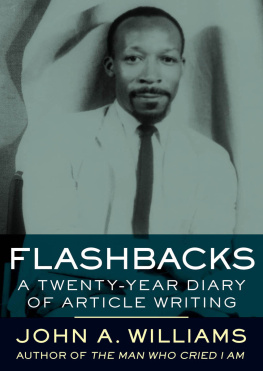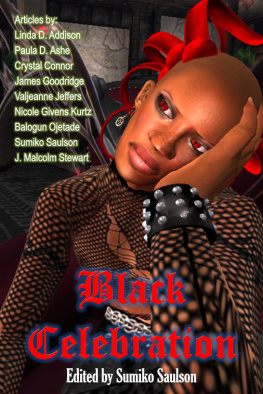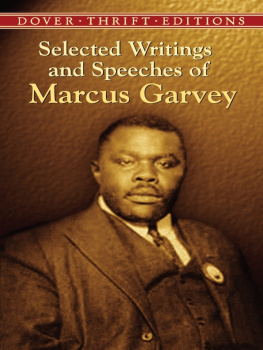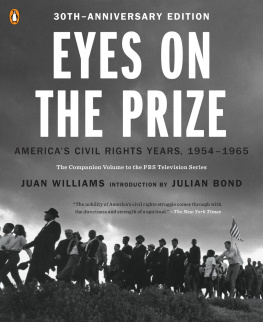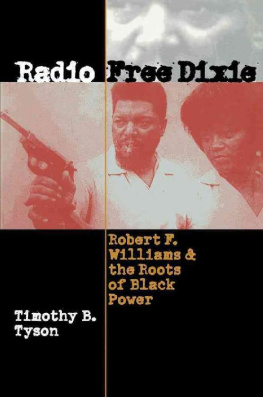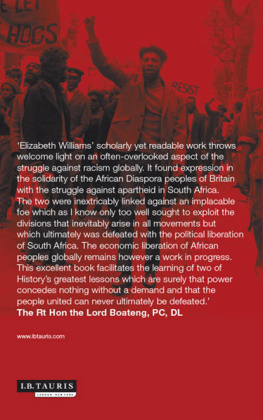Flashbacks
A Twenty-Year Diary of Article Writing
John A. Williams

This book is dedicated to E. J. Jones, Dennis Lynds, George and Vivian Patterson, Wendell J. Roye, Gene Williams and Mrs. Lee Esther Williams for sharing other days past, but not forgotten.
GENERAL INTRODUCTION
I
J. Luther Sylvan!
A thin man with a voice in the middle registers, Mr. Sylvan looked a little like a dusky young John Barrymore. He wore his felt hats brim down at the side; beneath them his hair was longfor the time and placeand tightly waved. We all wished we had waves in our hair like Mr. Sylvan. His Van Dyke beard seemed to go well with his face; it was a part of him, like his hats, like his soft voice.
Mr. Sylvan was editor and publisher of the Progressive Herald, a black weekly newspaper in Syracuse that served other black communities throughout central New York state. J. Luther Sylvan lived in a large red brick building on East Fayette Street at the time I became aware of him, his paper, and felt some strange stirrings within myself about words and writing; hed probably lived elsewhere when I was younger. The large black and gold sign on the side of the East Fayette Street building told you that this was also the office of the Progressive Herald, and if you knew anything about Syracuse you knew that Mr. Sylvan, a Democrat, and therefore a lamb back then, was in a den of vicious Republican lions; Onondaga County has always been so and impossibly conservative as well, but then the two always seem to go together.
Like Jet magazine today, everyone sneered at the PHbut they bought it. Its tabloid format, varying from four to six and on rare occasions eight pages, contained local news as it affected Syracuse Negroes, general black news culled from the large black weeklies, a society section, run by Mrs. Sylvan, and a gossip column called at one time The Periscope. This last was written by a former high school track star, Emmanuel Henderson, fondly known by nearly everyone as Emo. Many of the people who sneered at the PH could be seen plying Emo with drinks on weekends in Little Harlem, Whiteys, Claudes, The Club, Homers and Hanks.
Most papers of this kind are often badly smudged or under-inked from letter press printing. And there was the widespread assumption that Mr. Sylvan was not a rich man, no matter how Barrymoreishly he dressed. On the other hand, he could not be a poor manno one, no matter how mean his publicationcould be. We thought.
One day, I think it was shortly after Id been discharged from the Navy, I called on Mr. Sylvan to ask if I could write for his paper. The office was a part of his flat. Piles of PHs rose from floor to ceiling and the place reeked of newsprint and stale paper. Also like most papers of that genre, the need for people to hustle ads to place in the paper far exceeded the need for writers. I dont remember what happened at that meeting, but somehow I did come to write for the paper, covering visiting black bands or white bands with black members and the annual Syracuse Civic Lenten Services, when black clergymen like Shelby Rooks came to deliver sermons.
At about the same time on a trip to Chicago Id met Enoch Waters; Waters, a former World War II correspondent, was editor of the Chicago Defender. I persuaded him to take me on as a stringer in Syracuse. Baseball had opened up to blacks then, Jackie Robinson being the lone black flash in the International League, playing for the Montreal Royals. The Syracuse Chiefs were in the same league, so Robinson came to town often enough, followed soon by Vic Power and Elston Howard. I also sent in nonsports pieces.
The Associated Negro Press Association, run by the late Claude Barnett, was also located in Chicago, and from time to time I wrote pieces for him which were then used by black papers.
The Progressive Herald, Chicago Defender and the National Negro Press Association had two things in common. The first was that they didnt pay, although Messrs. Sylvan, Waters and Barnett talked vaguely of a space rate basis. The second was that they were not terribly critical in the sense that they merely edited your copy, but didnt tell you why or how to improve the quality and content of your pieces. Naturally, they ran my stories without byline.
In the winter of 1951, when I was trying desperately to find some place to land when I came out of the Graduate School at Syracuse University, I turned to Ebony. Black students didnt have to be told that they were not going to wind up on white radio stations or white newspapers. John H. Johnson, the publisher asked me to do an article on the relationship between the university and the Negroes in the city, as a kind of a test. I was fired up; there was little doubt in my mind that I was going to give him a socko piece. My attitude did much to shore up the sagging confidence that my wife had in me and writing. I didnt much blame her; we had a son going on three and she was three months pregnant with what turned out to be another boy. For five years itd been classes and part-time jobs, summer jobs; the GI bill and the 5220 club. She was sick of it and so was I.
I probed through every facet of the university and the community and found a great deal of interesting material; I badgered the Chancellor half to death for his views. I interviewed old Syracusans and newcomers, one of them being the first black man on the SU faculty in the department of sociology, Charles V. Willie, now Dr. Willie and vice-president in charge of student affairs.
I sent the article together with pictures to Johnson. Silence, long silence. Another letter, slightly more desperate in tone, and another. Silence. Finally, I put together what little money we had, borrowed twenty dollars and took a Greyhound bus to Chicago where I knew I could stay with relatives. I called Johnson and managed to get an appointment, and then I called Dr. Ellsworth Hasbrouck about whom Ive written more elsewhere. (He figured prominently in the article I did for Johnson, having been booted out of the SU medical school by its director, Herman G. Weiskotten, for no other reason than being black.) I told Hasbrouck why I was there and he offered to intercede for me, since he knew Johnson and had examined many of his policyholders when Johnson was an insurance man. For the record I can only say that then I didnt know how things worked, and I refused his help. In retrospect, I can also say Im glad I did.
But when I emerged from Johnsons office, after a five-minute conference, I wasnt so sure. Johnson told me that hed decided to give me the five minutes because Id come from so far away. As far as the article was concerned, he didnt like the writing; I should write like Dan Burley, he said, whose work Id read in the columns of the Amsterdam News. That was that. Before me lay the ride back on the cold bus, a wife with a bellyful of child and an I-told-you-so look, and a place back coremaking at the foundry where Id worked summers. I wasnt so sure about the writing, but I knew I was damned good at my job in the foundry, one of the best coremakers to come down the pike. That knowledge, however comforting those summers when I knew that September would find me back in class, this time out seemed hollow.
II
It was a long time from the foundry to this autumn day. Gray hairs pepper my head and people always comment on how gray my beard is getting. My older sons toss off their martinis with the super-cool of their generation, and one day my daughter-in-law will blossom in her belly and Ill be a grandfather. Ive written all that time and if Ive ever come to one single, positive conclusion it is that writing articles is no sane way for a man to make his living. Article Writing Highway is littered with wrecks, maimed and dead.

